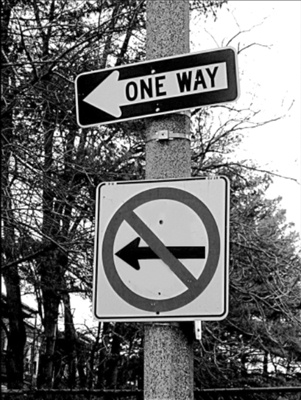All Nonfiction
- Bullying
- Books
- Academic
- Author Interviews
- Celebrity interviews
- College Articles
- College Essays
- Educator of the Year
- Heroes
- Interviews
- Memoir
- Personal Experience
- Sports
- Travel & Culture
All Opinions
- Bullying
- Current Events / Politics
- Discrimination
- Drugs / Alcohol / Smoking
- Entertainment / Celebrities
- Environment
- Love / Relationships
- Movies / Music / TV
- Pop Culture / Trends
- School / College
- Social Issues / Civics
- Spirituality / Religion
- Sports / Hobbies
All Hot Topics
- Bullying
- Community Service
- Environment
- Health
- Letters to the Editor
- Pride & Prejudice
- What Matters
- Back
Summer Guide
- Program Links
- Program Reviews
- Back
College Guide
- College Links
- College Reviews
- College Essays
- College Articles
- Back
Our Inner Ethicist
“We the People” of the United States have decided. We will stand for fairness, justice, and equal opportunity--even if we are sometimes tempted to steer down the “immoral” road, encited by an easier route or a quicker path. In many institutions, including public schools, incentives are offered in order to bring in greater charity revenue--the quick and easy path of collecting donations. This is the alternative when altruistic motive fails. Naturally, when offered bonus points towards their final grades, many students will participate, but is this fair to the unfortunate who cannot? How far does this “morality” go when there is a goon chance some students will not be able to donate?
These students are found in every school. Some cannot donate because they are not allowed. This may be due to family morals, religious text, or simply philosophy pressed upon them. The students are not able to bring anything in for charity, and miss out on the bonus points.
Other students are economically unfortunate and cannot afford to donate. Offering bonus points to those who can is a subtle form of discrimination. If we are going to be “moral” and help our neighbor, let us first hold highly two of our more basic aforementioned values--fairness and equal opportunity.
Moving on to those who can afford donating, say those bonus points are added in to their final grades. How accurate of a reflection of hard work and intelligence are these grades if they are based on a skewed and unfair system? Once again, let us remember our earlier values of justice and equal opportunity, and give out the academically earned grade, not the economically-fortunate one.
Now we are left to rely on our inherently cooperative nature as human beings to help each other. Our incentive could be the personal satisfaction of knowing we helped make a difference, and in warmly touching others’ lives. No one can deny that “bonus point” incentive may work for some, but does the end truly justify the means? Let us take the straight and narrow path, and not veer into the easier and seemingly innocent route.

Similar Articles
JOIN THE DISCUSSION
This article has 1 comment.
